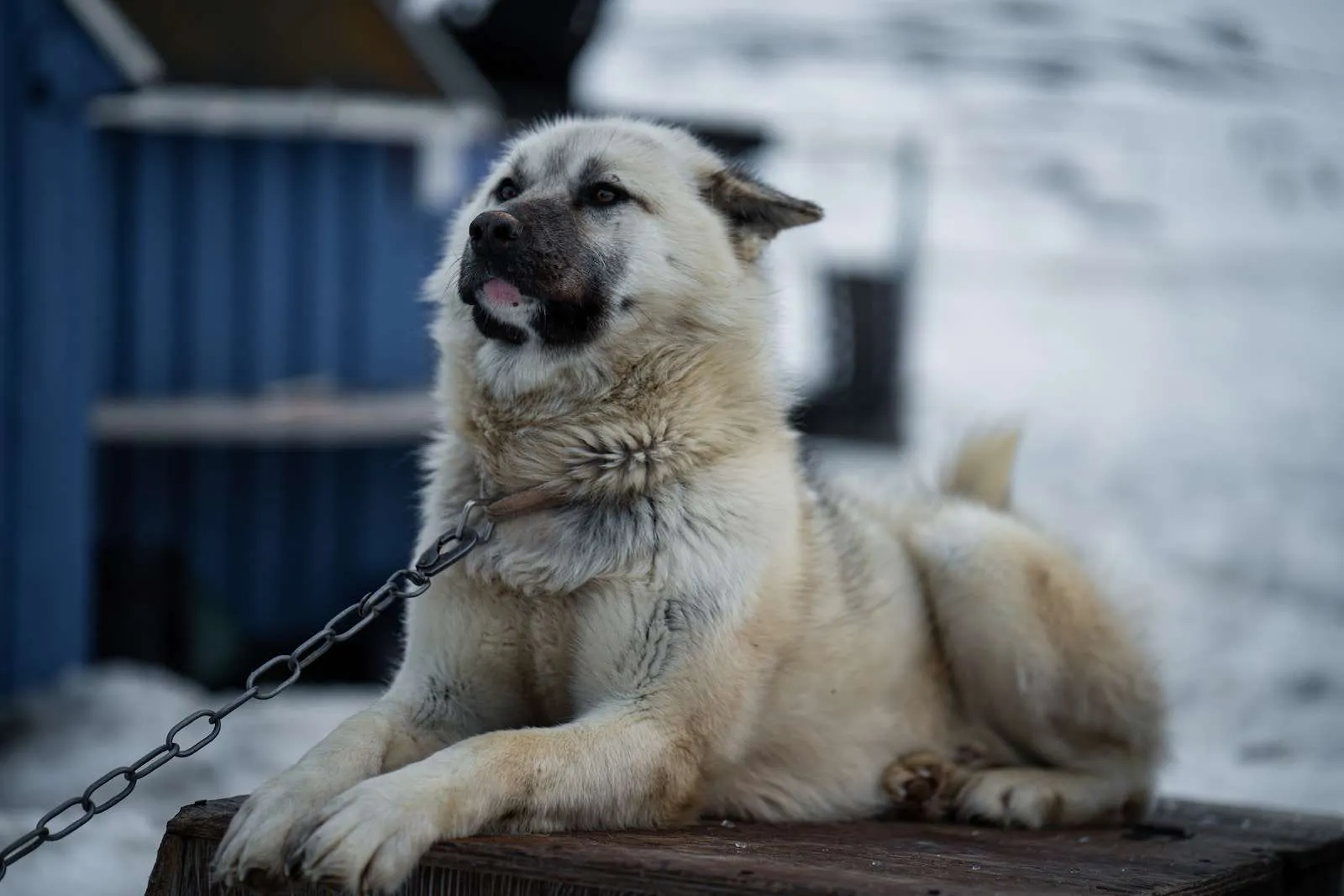Statistics:
- Height: 24 to 28 inches
- Weight: 100 to 150 pounds
- Life Span: 10 to 13 years
- Diet: A balanced diet of high-quality dog food suitable for their size, age, and activity level.
Akita Bernard Overview:
The Akita Bernard is a unique and impressive crossbreed, combining the regal Akita with the gentle and affectionate Saint Bernard. This hybrid breed exhibits a perfect blend of loyalty, intelligence, and playfulness, making them a delightful addition to any family.
Akita Bernard Highlights:
- Powerful and Sturdy: The Akita Bernard inherits the strong build and muscular physique of both parent breeds, giving them a robust appearance.
- Loving and Protective: Like the Saint Bernard, this mix is known for its affectionate and protective nature towards its family members.
- Intelligent and Obedient: The Akita Bernard often possesses the intelligence and trainability of the Akita, making them eager to learn and follow commands.
- Gentle and Patient: Thanks to the Saint Bernard influence, this hybrid is generally gentle and patient, especially with children.
Akita Bernard Evolution and History:
The Akita Bernard, as a crossbreed, likely originated in recent decades, following the intentional breeding of Akita and Saint Bernard dogs. The aim was to combine the exceptional traits of both breeds to create a versatile and devoted family companion.
Akita Bernard Size and Weight:
As a large-sized breed, the Akita Bernard stands between 24 to 28 inches tall at the shoulder and weighs between 100 to 150 pounds.
Akita Bernard Personality:
The Akita Bernard is known for its friendly and affectionate nature. They are generally calm and gentle but can display loyalty and protectiveness when their family is threatened.
The Adaptability of the Akita Bernard:
This hybrid breed tends to adapt well to different living environments, provided they receive enough space and exercise.
Akita Bernard Temperament:
The Akita Bernard’s temperament is a wonderful blend of loyalty, intelligence, and gentleness. They are often good with children and other pets in the household.
Akita Bernard Maintenance and Grooming:
Regular grooming is essential to maintain the Akita Bernard’s thick double coat and prevent matting.
The Trainability of the Akita Bernard:
With their intelligence and eagerness to please, Akita Bernards are generally trainable and respond well to positive reinforcement training methods.
Exercise Needs of the Akita Bernard:
As a large and active breed, Akita Bernards require regular exercise to keep them physically and mentally stimulated.
Akita Bernard Health:
- Hip Dysplasia: A common concern for larger breeds, hip dysplasia can impact the Akita Bernard’s mobility and cause discomfort.
- Bloat: As with many large dogs, Akita Bernards may be prone to bloating, which can be a serious and life-threatening condition.
- Heart Issues: Certain heart conditions may be a concern for this breed, and regular veterinary check-ups are crucial to monitor their heart health.
Akita Bernard Care:
Routine veterinary visits, a balanced diet, regular exercise, and proper grooming are crucial for the overall health and well-being of an Akita Bernard.
Akita Bernard Feeding:
A high-quality diet, divided into regular meals, is essential to meet the nutritional needs of an Akita Bernard.
Akita Bernard Coat Color and Grooming:
The Akita Bernard’s coat may vary in color and pattern, but it typically has a dense double coat that requires regular grooming to prevent matting.
Akita Bernard and Children:
Akita Bernards are generally good with children, thanks to their patient and gentle nature.
Akita Bernard and Other Pets:
With proper socialization, Akita Bernards can coexist well with other pets in the household.
Similar Dogs:
- Saint Bernard: As one of the parent breeds, the Saint Bernard shares its gentle and loving nature with the Akita Bernard, making them both wonderful family companions.
- Akita: As the other parent breed, the Akita contributes to the Akita Bernard’s loyalty and protectiveness, making them reliable guardians for their families.

